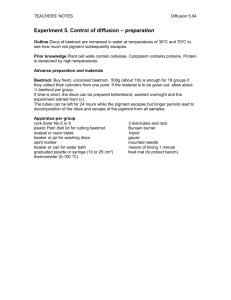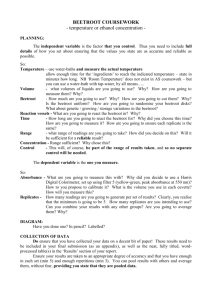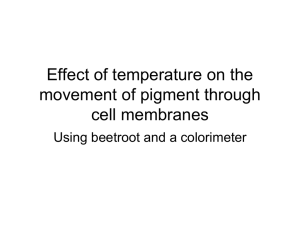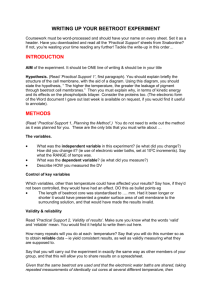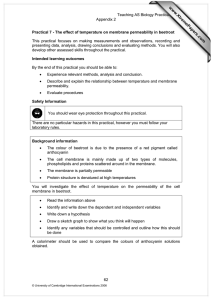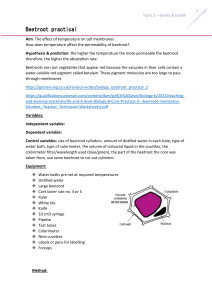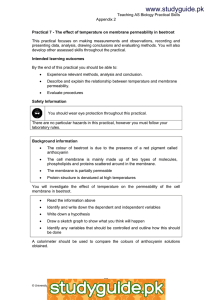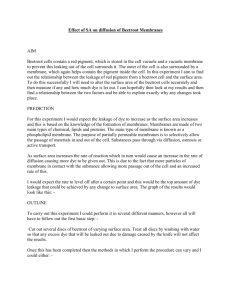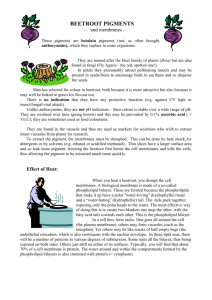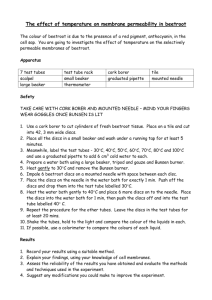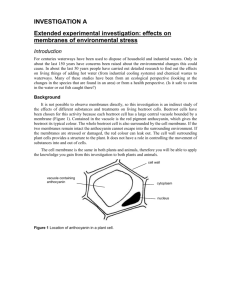Beetroot membrane Assessed Experiment
advertisement
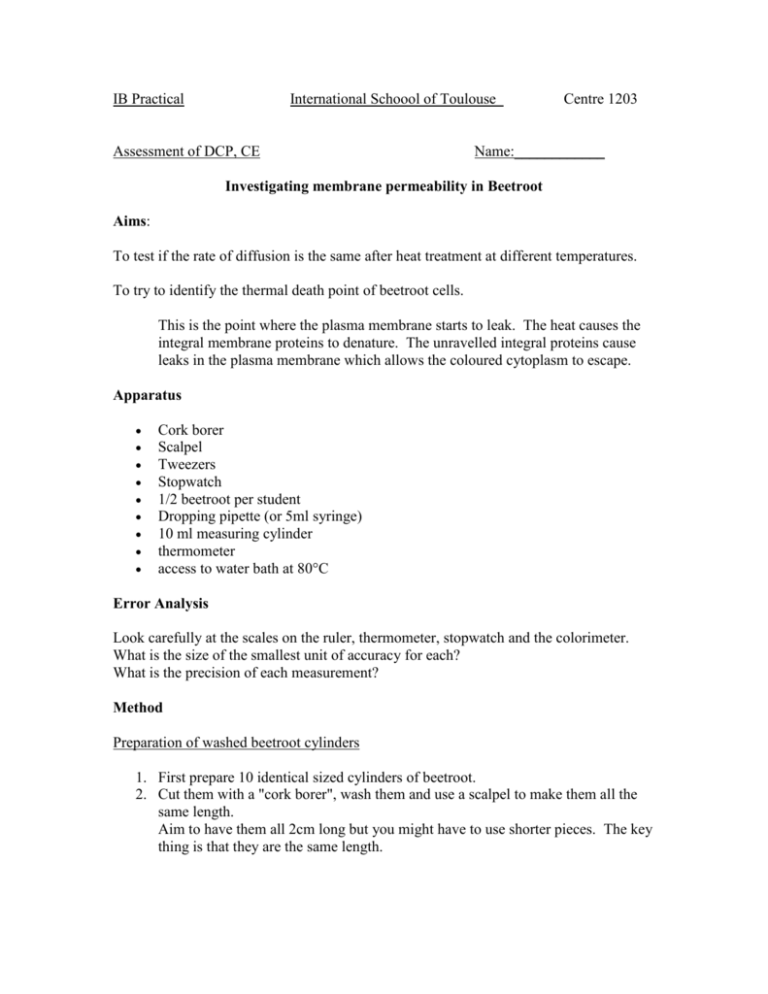
IB Practical International Schoool of Toulouse Assessment of DCP, CE Centre 1203 Name:____________ Investigating membrane permeability in Beetroot Aims: To test if the rate of diffusion is the same after heat treatment at different temperatures. To try to identify the thermal death point of beetroot cells. This is the point where the plasma membrane starts to leak. The heat causes the integral membrane proteins to denature. The unravelled integral proteins cause leaks in the plasma membrane which allows the coloured cytoplasm to escape. Apparatus Cork borer Scalpel Tweezers Stopwatch 1/2 beetroot per student Dropping pipette (or 5ml syringe) 10 ml measuring cylinder thermometer access to water bath at 80°C Error Analysis Look carefully at the scales on the ruler, thermometer, stopwatch and the colorimeter. What is the size of the smallest unit of accuracy for each? What is the precision of each measurement? Method Preparation of washed beetroot cylinders 1. First prepare 10 identical sized cylinders of beetroot. 2. Cut them with a "cork borer", wash them and use a scalpel to make them all the same length. Aim to have them all 2cm long but you might have to use shorter pieces. The key thing is that they are the same length. Prepare 10 diffusion solutions – where the beetroot will rest after heating 1. Set up 10 test tubes into 2 test tube racks. 2. Put 5cm3 of distilled water into each test tube. 3. Label them with the Head treatment temperatures; 70°C, 65°C, 60°C, etc to 25°C. Heat Treatment 1. Make a "water bath" using 150ml of hot water at 80°C in a 250ml beaker and thermometer. Use water from the electronic water bath. 2. When the water has cooled to 70°C put in the first beetroot cylinder, for exactly 60 seconds. LEAVE THE STOPWATCH RUNNING. 3. Take out the beetroot and put it into the diffusion solution labelled 70°C for 15 minutes. (note the time on the stopwatch – you will leave it for 15 minutes). 4. Repeat steps 2 & 3 when your water bath has cooled to 65°C, then 60°C etc. to 25°C. 5. Ensure that all the beetroot samples have exactly 60 seconds heat treatment and 15 minutes diffusion time to make a fair test. 6. Take the beetroot out of your diffusion solutions exactly 15 minutes after you put it in. 7. Save the labelled diffusion solution for the colorimeter. KEEP THE LIQUID ! Measuring the Pigment Loss from the tissue The more the pigment which has diffused out of the cells of the beetroot the deeper the purple colour will be in the diffusion test tube. We can measure exactly the colour intensity using a colorimeter. 1. Fill the little plastic colorimeter cuvette 2/3rds full and put it into the slot in the colorimeter. (The machine needs careful calibration first to get good results) 2. Note down the reading which you get. Beware! you could be measuring the amount of light passing through your solution or you could be measuring the amount of light absorbed by the colour pigment. 3. Repeat with all the other solution and record your results in a table of your own. Results and Conclusion (DCP & CE) Present your individual results and error analysis in a clear table of results. Collect the results from 2 other groups in your class and present this neatly. Plot a graph of your experiment results. Identify the thermal death point of the membrane, if you can. Write a conclusion which explains what you have found out. Find something in a text book which either supports or disagrees with your conclusion. Write a paragraph to explain the contribution Evaluate the limitations, weaknesses of the experiment and your data and suggest ways to improve the experiment.
